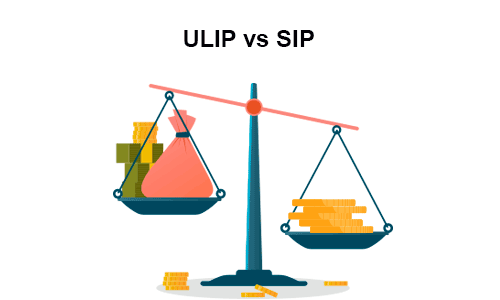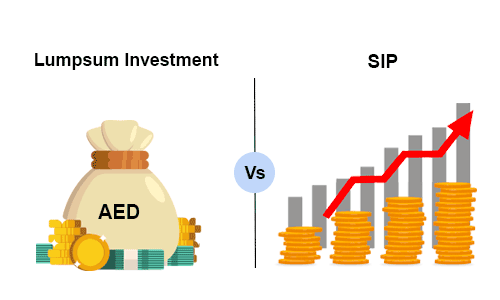Best Mutual Funds in India
Mutual funds are instruments to pool money from many investors to buy stocks, bonds, or other assets. You can think of it like a big pot where everyone puts in their money and experts manage it to grow. Investing in mutual funds can help spread risk because you own a piece of many investments, not just one.
If you're thinking of making mutual funds investments in India, this article is for you. We'll share a list of the best mutual funds in India to guide you.
Table of Content
Just remember, this is only for information — always do your own research and make informed choices before investing.
Best Mutual Funds in India
Let's take a look at some of the best mutual funds in India for 2023:
- Axis Bluechip Fund: Managed by Axis Mutual Fund since 2010, this equity fund invests in various company stocks. Its strong track record in generating returns over the years makes it a favourite for those seeking mutual fund investments in India.
- Mirae Asset Large Cap Fund: Established in 2008 by Mirae Asset Mutual Fund House, this fund focuses on large-cap stocks. With its goal set on long-term growth, it has consistently ranked among the top mutual funds in India.
- Parag Parikh Long-Term Equity Fund: Launched in 2013 under PPFAS Mutual Fund, it's a flexi cap scheme that zeroes in on stocks for the long haul. The benchmark for this fund is the NIFTY 500 Total Return Index.
- UTI Flexi Cap Fund: This fund has a diverse strategy, investing in various sectors of the Indian economy. While equities are its primary focus, it also ventures into other areas like fixed-income securities.
- Axis Midcap Fund: A product of Axis Mutual Fund since 2011, this mid-cap equity scheme aims at long-term capital appreciation, tracking the S&P BSE 150 MidCap Total Return Index.
- Kotak Emerging Equity Fund: Introduced by Kotak Mahindra Mutual Fund in 2013, it focuses mainly on mid-sized companies. With an average annual return of 6.26% since its launch, it's one of the best mutual funds in India for SIP.
- Axis Small Cap Fund: Launched by Axis Mutual Fund, this equity scheme primarily concentrates on small-cap companies for significant long-term growth.
- SBI Small Cap Fund: Managed by SBI Mutual Fund, this scheme predominantly pours its investments into small-cap company stocks. It aspires to offer both long-term growth and liquidity to its investors.
- SBI Equity Hybrid Fund: Another gem from SBI Mutual Fund, this hybrid scheme balances its investments between debt and equity. It's designed for those seeking capital growth combined with the fluidity of an open-ended scheme.
- Mirae Asset Hybrid Equity Fund: Operated by Mirae Asset Mutual Fund, this hybrid scheme amalgamates equity, debt, and money market instruments to provide both capital appreciation and current income.
Factors to Consider Before Selecting Top Mutual Funds in India
Choosing the right mutual funds in India is an essential decision for your financial growth and security. Before taking the leap, it's essential to evaluate multiple factors to ensure that your chosen fund aligns well with your personal and financial aspirations.
Let's look at some of the crucial considerations -
- Financial Objectives: Recognise your goals before investing.
Do you need short-term gains, saving for retirement, or building wealth over time?
Different funds serve different purposes, so it's essential to match the fund's objective with your financial goals.
- Risk Appetite: Everyone has a different tolerance for risk. Some investors prefer stable returns, while others might be okay with volatility for potentially higher gains.
Make sure the fund that you choose aligns with how much risk you're willing to take.
- Investment Horizon: How long do you plan to keep your money invested? Some funds are ideal for short-term investments, while others might require a longer commitment to yield optimal returns.
- Expense Ratio: This represents the annual fees charged by mutual funds. A higher expense ratio can reduce your returns over time, so it's crucial to find a balance between a fund's potential returns and its associated costs.
- Performance of Fund: While past performance isn't a guarantee for future results, it does provide an idea about the fund's consistency and potential. It's wise to examine a fund's historical performance against its benchmark and other funds.
- Taxes: Different funds are taxed differently based on their type and holding period. For instance, equity funds and debt funds have different tax implications. It's essential to understand these nuances to make an informed decision.
- Fund Manager: The expertise and strategies of the fund manager play a pivotal role in a fund's performance. Researching the fund manager's track record and approach can give insights into the potential success of the fund.
- Liquidity Needs: Make sure that the chosen fund aligns with your liquidity needs. While some funds allow easy and quick withdrawal, others might have a lock-in period or exit fees for early withdrawals.
- Diversification: Opt for funds that spread investments across sectors, assets, or regions. Diversification can act as a safety net, reducing the impact if one investment performs poorly.
The Takeaway
By investing in mutual funds in India, you can diversify your portfolio and tap into the expertise of seasoned fund managers. The list of best mutual funds in India for 2023, provided above, presents a blend of opportunities to match varying investor profiles, aspirations, and risk tolerances.
Remember to consider your financial objectives, understand your risk appetite, and account for factors like the fund's past performance, associated expenses, and tax implications. In addition, the expertise of the fund manager and the asset diversification approach should be on your evaluation radar.
With a careful and informed approach, mutual fund investment in India can pave the way for financial growth and long-term security. Always take a holistic view, research diligently, and, if required, consult financial experts before making investment decisions.

More From Investment
- Recents Articles
- Popular Articles






.jpg)











.jpg)
.jpg)
















